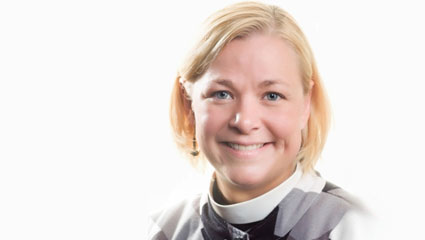While reading the current issue of my favorite magazine, I saw a blurb about a website called “One Million Monkeys Typing.”
The title is a play on the “infinite monkey theorem,” which claims that a million monkeys typing on computers will eventually compose Shakespeare. The site is a writing project, where people can submit portions of stories as well as read and vote on others’ submissions. By contributing, voting and editing, many people are involved in the creation of one writing project, and the resulting story is based on the collective experience of many people.
Often, when I am working on a sermon, or having difficulty writing one, I think about the thousands of other pastors in the country and around the world who are, at that same moment, trying to create a sermon on that very same text. With this Website in mind, I couldn’t help but alter my vision slightly−imagining one million monkeys in clergy shirts, furiously typing away, hoping someday to achieve homiletical perfection.
After visiting the site, I wondered, “What would a sermon sound like if it were written this way?” I smiled as I thought of the possible combinations of biblical texts, theological concepts, movie quotes and vacation stories that could result. On the one hand, it might take a while to produce a coherent sermon that matched the community’s needs and the color of the pastor’s stole. On the other, such a process would surely produce some fresh insights and unique conclusions.
One of the difficulties of the pastoral office is the potential for isolation. It can seem as though we are each alone, re-creating the “sermon wheel” week after week. While the perspectives of other pastors can help, we are still in a unique context that no one six states away (or even six miles) can really grasp. Perhaps having the submissions of a few extra monkeys might not be a bad thing.
I enjoy and appreciate text studies with other pastors, but often my best sermons are the result of Bible studies with those are not preachers. During these studies, I have the benefit of hearing individuals contribute snippets of theological insight and then watching the group refine those ideas. As a result, my sermons contain a richness that might otherwise be absent, a richness gained through the theological reflections of a community built on the collective experience of many. When this happens, it makes me wonder what other voices I am not hearing, what other perspectives I’m missing, and what dimensions they might add.
I’m not suggesting that sermons can be written by committee, or that it’s a good idea to use someone else’s vacation stories. But perhaps my sermons would be strengthened if my preparation resembled more of a conversation with my neighbors and less of working on a research paper. This might mean books or blogs, of course, but also face-to-face talks with people about the Bible, their cars, and their favorite movie quotes. I do think that if Scripture is more active in our communities’ discussions, and more monkeys are attempting to type, our sermons will come closer to theological Shakespeare.

